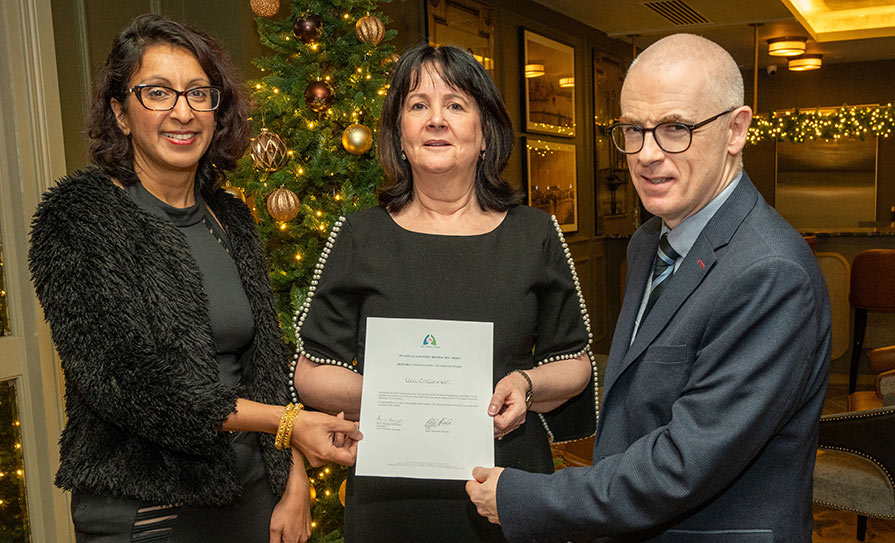<div> <h3 class=”DORSALheadMIstyles”>The big freeze in a miserable Irish summer</h3> </div> <div> <table cellspacing=”0″ cellpadding=”0″> <tbody> <tr> <td align=”left” valign=”top”>
At time of writing, a wonderfully typical Irish summer is exhibited in all its glory, with rain belting against the window and the <em>geansaí</em> is once again coming into consideration for daily wear.
</td> </tr> </tbody> </table> </div>
However, during the brief cameos made by our sun, some of the younger ones asked me for a scientific explanation as to why they suffer ‘brain-freeze’ when they eat ice cream. Prompted by feelings of inadequacy in being unable to provide a medically-based response, some cursory research was required.
In a pistachio nut-shell, brain-freeze — or <em>sphenopalatine ganglioneuralgia</em>, if you prefer — is the body’s way of telling you to reduce the speed at which you’re scoffing ice cream or very cold drinks.
When you do this, it causes a rapid change in temperature at the junction of the internal carotoid artery and the anterior cerebral artery (the internal carotoid artery of course supplies blood to the brain, while the anterior cerebral artery marks the beginning of brain tissue).
The pain itself manifests at the meninges, the outer covering of the brain, where these two arteries converge, causing them to contract and dilate rapidly.
The research was done by scientists at the Wake Forest Baptist Medical Centre in the US and was reported in <em>Science Daily</em>.
Researcher and neuroscientist at Wake Forest, Dr Dwayne Godwin, explained: “Brain-freeze is really a type of headache that is rapid in onset, but rapidly resolved as well. Our mouths are highly vascularised, including the tongue — that’s why we take our temperatures there. But drinking a cold beverage fast doesn’t give the mouth time to absorb the cold very well.
“One thing the brain doesn’t like is for things to change, and brain freeze is a mechanism to prevent you from doing that.”
However, frivolous as the research might seem, there may be wider applications. “We can’t easily give people migraines or a cluster headache, but we can easily induce brain freeze without any long-term problems,” says Dr Godwin. “We can learn something about headache mechanisms and extend that to our understanding to develop better treatments for patients.”
And the remedy for brain-freeze? Apparently, taking a sip of a tepid drink will help, as will pressing the tongue against the roof of the mouth, as it should still retain normal body temperature.
In the interests of promoting preventative medicine, maybe I’ll just tell the kids to eat their ice cream more slowly.
<div> <h3 class=”DORSALhead2MIstyles”>You can choose your friends… </h3> </div>
The detrimental effects of loneliness are now well established, but a piece of research from Michigan State University in the US suggests that as we get older, friendships are a stronger indicator of better health than even family relationships.
The initial study involved an impressive 271,053 people of all ages across 100 countries. In a subsequent study, 7,481 US citizens were surveyed on the quality of their relationships and chronic illness. The participants who had strong, healthy relationships with both family and friends had better overall health. However, in older age, good friendships were more important in promoting better health and happiness than family ones.
This, the researchers hypothesised, may be due to the optional nature of friendships — we tend to discard acquaintances who don’t make us feel good. In other words, you can choose your friends… you know the rest. This effect became even more important when the older person’s spouse was not present.
Assistant Professor of Psychology at Michigan State University Prof William Chopik told the journal <em>Personal Relationships</em>: “There are now a few studies starting to show just how important friendships can be for older adults. Summaries of these studies show that friendships predict day-to-day happiness more and ultimately how long we’ll live, more so than spousal and family relationships.
“Friendships help us stave off loneliness but are often harder to maintain across the life span,” he said. “If a friendship has survived the test of time, you know it must be a good one… ”
<div> <h3><strong>Bottom lines</strong></h3> </div>
A couple of slightly unkind jokes, sent to me by a reader, with apologies in advance.
Q: How do you hide a €50 note from a surgeon? A: Tape it to his children.
Q: How do you hide a €50 note from a pathologist? A: Hide it anywhere in direct sunlight.
Q: How do you hide a €50 note from an intern? A: Hide it under a dressing.
Q: How do you hide a €50 note from a plastic surgeon? A: Trick question — you can’t.












Leave a Reply
You must be logged in to post a comment.